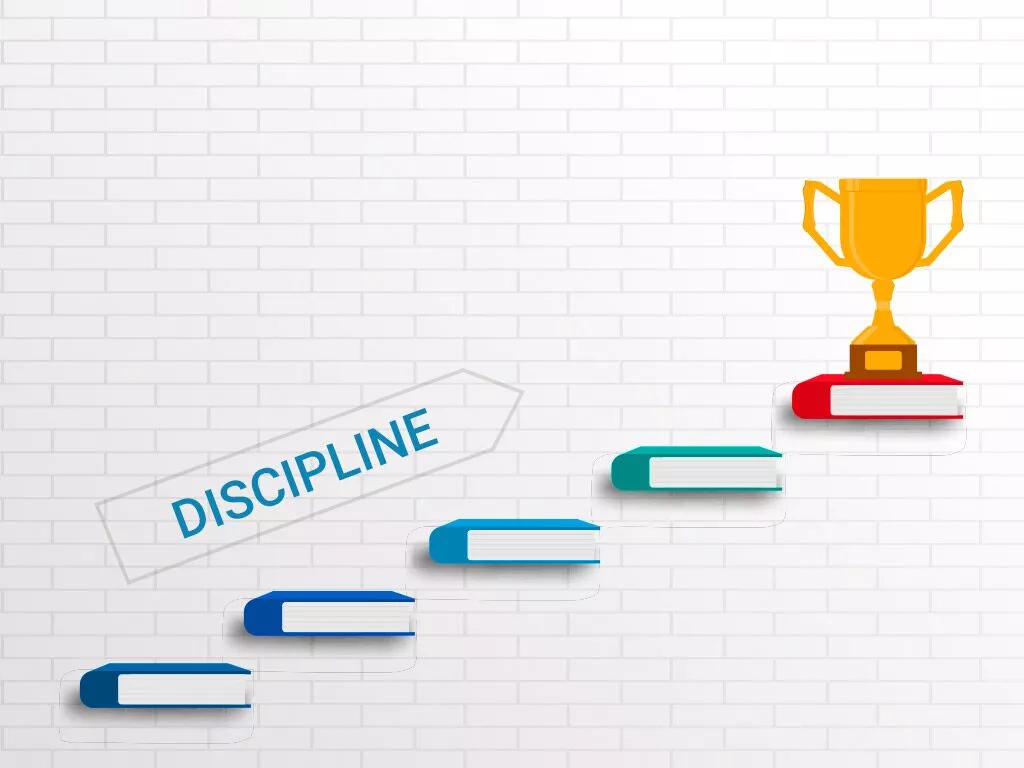The value of discipline in students is a foundation upon which successful academic and personal development is built. It helps learners build consistent habits, focus on goals, and manage time wisely. Discipline enables students to balance studies with other responsibilities and sets them on a structured path toward growth. Without discipline, even the brightest students struggle to maintain steady progress.
Educational institutions that encourage discipline in students often observe improved academic performance and better classroom behaviour. Students develop patience, self-control, and responsibility. These qualities contribute to an atmosphere that supports learning and teamwork. At Verified Campus, we emphasise how discipline shapes strong character and lays the groundwork for lifelong success.
Academic Excellence Begins with Discipline
Achieving academic excellence requires consistent effort and strong work habits. The presence of discipline in students ensures they are better able to set priorities, follow study plans, and meet deadlines. These habits help in reducing last-minute stress and improve overall academic performance. Disciplined students typically display a deep sense of responsibility toward their studies.
Discipline also plays a critical role in exam preparation. When students adhere to regular revision schedules and avoid distractions, they are more likely to succeed. Teachers also benefit, as disciplined classrooms are easier to manage and promote mutual respect. This makes the learning process more efficient and fulfilling for both educators and learners.

Behaviour and Social Skills Development
Discipline not only improves academics but also helps in building social and emotional intelligence. When students understand the importance of rules and respect boundaries, they learn how to behave appropriately in different settings. Practising discipline in students cultivates values such as honesty, punctuality, and cooperation.
Moreover, disciplined students are more empathetic and show consideration for their peers. These traits are valuable not just in school but throughout life. The development of social skills leads to stronger friendships, better teamwork, and respectful communication. Such traits support long-term personal and professional relationships.
Shaping Future Leaders through Self-Control
One of the greatest benefits of instilling discipline in students is the promotion of self-leadership. When students learn to control impulses and delay gratification, they gain better command over their actions. This helps them make informed decisions rather than acting on emotion or impulse.
Self-discipline is the foundation of leadership. Students who practice it are more likely to stay focused on their goals and inspire others through their actions. Leadership roles in student bodies, class monitorships, or extracurricular clubs often go to those who exhibit disciplined behaviour. Thus, discipline becomes an early step toward future leadership.
Role of Parents and Teachers in Instilling Discipline
Parents and teachers play a crucial role in developing discipline in students. When both parties work together, they create a consistent and supportive environment for the student. Teachers can set clear expectations, create structured routines, and reward disciplined behaviour. Parents, on the other hand, reinforce these habits at home.
It’s important for adults to model discipline in their own lives. Students often imitate what they see. When they observe timely actions, respect for rules, and consistent effort in adults, they’re more likely to adopt the same. Open communication and guidance strengthen a student’s ability to maintain disciplined habits over time.
Adapting to School Culture and Environment
Discipline helps students adjust to the routines and expectations of the school environment. It allows them to transition smoothly between activities and responsibilities throughout the day. The presence of discipline in students leads to fewer behavioural problems and promotes a focused atmosphere.
Adapting to a disciplined school culture also builds resilience. Students learn to overcome distractions and stay committed to their studies. Schools that cultivate such a culture produce well-rounded individuals who respect authority, cooperate with peers, and understand the value of structure. These attributes prepare students for future challenges.
Impact of Curriculum Style: CBSE vs Uttarakhand Board
The discussion of discipline in students becomes even more relevant when we consider the curriculum followed. For example, in comparing CBSE vs Uttarakhand Board, students are exposed to different academic structures and assessment patterns. Both boards demand a certain level of discipline, but the CBSE system typically encourages regular assessments and self-study.
Uttarakhand Board students often manage practical subjects alongside theoretical knowledge, requiring equal discipline to succeed. Regardless of the board, a student’s ability to stay committed, prepare consistently, and attend classes regularly is a shared key to achievement. Discipline bridges the gap between different educational systems and supports academic success.
How the School Capital of India Encourages Discipline
Dehradun, known as the School Capital of India, houses some of the most disciplined and prestigious institutions in the country. These schools not only focus on academics but also on moral and character education. Many of them implement structured daily routines and codes of conduct to nurture student discipline.
Boarding schools in particular place great emphasis on time management, responsibility, and accountability. These schools demonstrate that teaching discipline in students is about creating an environment where good behavior becomes a daily habit. Students trained in such environments are often more prepared for the rigors of adult life.
Time Management and Academic Balance
Effective time management is one of the clearest signs of discipline in students. When students plan their day and allocate time to studies, recreation, and rest, they become more productive. Balancing academics with other responsibilities helps prevent burnout and encourages a healthier student lifestyle.
Teachers can support students by encouraging planners, schedules, and weekly goals. Time management also teaches students to prioritise tasks and handle pressure calmly. These skills carry into adulthood, where efficient time use is often crucial to success. A disciplined routine keeps distractions at bay and enhances academic outcomes.
Role of Extracurricular Activities in Building Discipline
Participating in sports, arts, and cultural events teaches discipline through practice and teamwork. Students learn to follow instructions, respect time, and remain committed to their responsibilities. Extracurriculars add structure and routine, encouraging students to manage time and stay organized.
Students who juggle studies with extracurricular commitments require strong self-discipline. They learn the value of preparation and effort, which are vital in all areas of life. These activities instill determination and a sense of accountability. The discipline gained here contributes to personal development and academic resilience.
Career Preparation Begins with Disciplined Habits
As students approach higher education and careers, the habits they develop in school form the base of their future. The importance of discipline in students cannot be overstated in this regard. From meeting deadlines to attending interviews on time, disciplined behavior directly affects employability.
Future employers look for individuals who are reliable, organized and focused. Students who develop these qualities early are more likely to succeed in competitive fields. By instilling discipline during school years, educators prepare students not just for exams, but for life after graduation. Discipline, therefore, is the silent key to career success.

Dehradun Schools List: Fostering Disciplined Excellence
Parents searching for quality institutions often refer to the Dehradun schools list for reliable options. Many schools in this list are known for strict academic frameworks and disciplined learning environments. From structured timetables to behaviour management systems, these schools build student character alongside academics.
These institutions demonstrate the power of discipline through high pass percentages, skilled alumni, and strong ethical values. Their disciplined environments encourage better academic outcomes and holistic growth. Students graduating from these schools often show better self-regulation, leadership, and time management skills.
Conclusion: Building a Better Future through Discipline
In conclusion, discipline in students is essential for academic excellence, personal development, and future success. From classrooms to extracurriculars, discipline acts as a guiding force that shapes strong, capable individuals. It empowers students to set goals, follow through, and navigate challenges confidently.
The best girls schools across India, especially in cities like Dehradun, are focusing on embedding discipline into daily routines. These schools understand that discipline is not about strict rules, but about teaching habits that support lifelong achievement. Encouraging students to be disciplined today lays the path for a more responsible and successful tomorrow.


